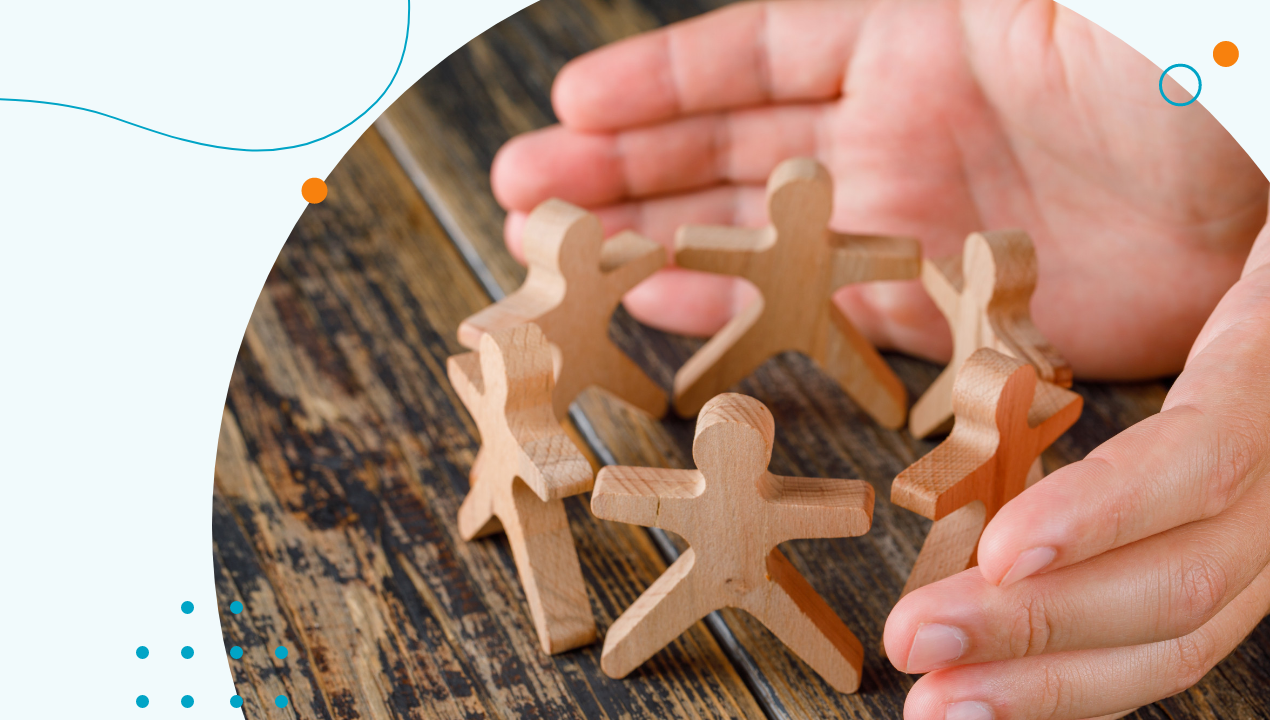How to Build Strong Customer Relationships
Customer relationships are at the very heart of the majority of businesses. There are several strategies and tactics that you can use to optimise your customer relations strategies, many of which make customer satisfaction the top priority, including during marketing strategies and campaigns.

Keep reading to learn more about the relationship approach to marketing, how you can use your marketing strategies to build better relationships with your customers, and other strategies that you can use to maintain the strong relationships you will develop and encourage more customer loyalty.
What is the Focus on Relationship Era Marketing?
Any business owner today knows good customer relationships are crucial to success. Strong customer relationships are important as they set the tone for how others think about your business and its products or services. Because of this, the focus is on creating stronger relationships with customers through marketing, rather than simply talking about how great a product is and why they should buy it. Strong customer relationships have various benefits for businesses, including more stability from repeat custom, more purchases and money spent at the company over time, and better word-of-mouth marketing, as customers who are satisfied and feel that they have a strong relationship with your brand are more likely to talk about it with others.
What is the Relationship Approach to Marketing?
Relationship marketing refers to a range of actions and tactics used when marketing to customers based on building and maintaining a personalised relationship with the customer. It focuses on guiding customers through the purchase process and continuing to foster a strong relationship and customer loyalty throughout the lifecycle.
Compared to transactional marketing, which focuses more on the product and getting customers to make a purchase, the relationship approach to marketing is much more customer-centric. It is also often more effective since getting somebody to agree to something is easier if you have a good relationship with them. On the other hand, it’s much harder to convince a new lead to purchase your business if you haven’t put any effort into building any relationship with them beforehand. Relationship marketing is about getting to know your customers better, taking the time to introduce yourself and what you offer, and answering any questions they might have before you ask them anything.
Benefits of a Relationship Marketing Program
Relationship marketing strategies have various benefits to building better customer relationships for your brand. When done well, a good relationship marketing campaign can have several excellent advantages for your business, including improving customer loyalty and customer retention, leading to more purchases and more significant profits, and more opportunities to successfully up-sell and cross-sell to an audience that values your company and feels connected to it, and improved brand awareness and word-of-mouth marketing through customer reviews and referrals.
Building Customer Relationships Through Effective Marketing
Marketing is a broad process that aims to attract customers to purchase products using a range of promotional and advertising techniques. When done effectively, it will connect a business with new customers or clients and ensure the necessary information is communicated to them. Companies in all industries often invest a lot of money and time into sales, promotion, and advertising strategies to build a long-term customer base and increase sales numbers.
When building better customer relationships with marketing, there are four main areas to consider. These are product, price, place, and promotion. To build strong customer relationships, customers must be satisfied in terms of the product that they receive. Sadly, no matter how well you communicate with customers or how many special offers you send to entice them back, they are unlikely to risk it again if they received a poor-quality product the first time around. Products should be priced within the preferred range of your target market and should be available widely in the market to develop a customer base.
After these basics, customers should also experience hassle-free and effective service. When selling online, for example, customers should not wait any longer than a few days for the product to be delivered unless specifically agreed upon with them at the time of purchase. Customers should be communicated clearly throughout the process.
Process of Relationship Marketing
While any marketing can be used to build customer relationships, relationship marketing is unique because it focuses on building a relationship with the customer before making the sale. For example, drip email campaigns with surveys can be used to get to know customers better before promoting products or services to them, allowing you to offer more tailored suggestions to each customer and only approach them to make a sale when you have a better understanding of what they are looking for and the type of products that might solve their problems.
Customer Relationship Development Strategies
There are several things you can do to build customer relationships using effective marketing strategies. For the most part, it involves effectively communicating with your leads from the moment you get their information, nurturing your leads, and learning more about them to create a relationship where they feel that they can trust your brand, as your business cares about solving their problems rather than simply making a quick sale.
- Communicate Early
Even the best people can be hard to remember months later if you’ve only met them once. To build effective relationships with your customers, it is essential to communicate with them as early as possible. This could mean setting up emails that are triggered as soon as a prospect signs up to your email list, welcoming them to your newsletter, and providing them with more information.
- Communicate Often
You don’t want to bombard your leads every day or overload them with information, but on the same note, it’s also essential to not communicate so sparsely that you are forgotten about. The trick is to send communications often enough to stay on their minds, but not so much that you begin to annoy them.
- Get to Know Them
Getting to know your leads is a huge part of the lead nurturing process and one of the main aspects of relationship marketing that sets it apart from other marketing strategies. Surveys, analysing email clicks and opens, and tracking website activity can all be useful ways to find out more about what your leads are looking at and what they might need help with the most. The more you know about your leads, the easier it will be for your business to build a strong customer relationship based on helping them find solutions to their problems or answers to their questions.
- What’s in it For Them?
Relationships are a two-way street, and the same is true for a business and its relationships with customers. To effectively build relationships with your customers, it’s important to ensure a reward for both parties. These days, customers want more than simply a great product when they buy it from a particular brand. Rewarding custom and loyalty with informative and helpful content, money-off vouchers, the chance to earn with referral schemes, or simply asking for feedback and then keeping customers informed about how this has been used can make all the difference when it comes to nurturing strong relationships and turning leads into loyal customers.
Strategies to Maintain Customer Relationships
Building the relationship is just the start – after your customer has successfully made the purchase, you will need to put some effort into maintaining the relationship with them. If you want a first-time customer to return and become a loyal, long-standing customer of your business, you will need to implement some strategies. Customer service is the first aspect to focus on – if your customer finds it hard to communicate with your brand, has problems with an item, or a purchase isn’t delivered on time, this will damage the relationship. Make sure that you go above and beyond the customer’s support expectations. Finally, keep the communication open – don’t make the mistake of dropping off the radar and never contacting your customer again once you’ve made the sale. Staying connected with your customers through online channels and social CRM is one of the most reliable ways to maintain healthy customer relationships.
What Are Some Strategies for Maintaining Customer Loyalty?
Research shows that loyal, repeat customers spend almost 70% more on average than new customers, so it’s essential to understand what your business can do to maintain customer loyalty. The first step is to ensure that loyal customers know they are appreciated – tokens of goodwill like money-off vouchers for purchases can go a long way. Provide helpful content that answers their questions or provides solutions, and keep learning about them to tailor your content and suggestions.
Relationship marketing is often much more effective than simple transactional marketing. It gives your business the chance to get to know prospective and existing customers better, improve your service to each customer, and ultimately boost customer loyalty.





